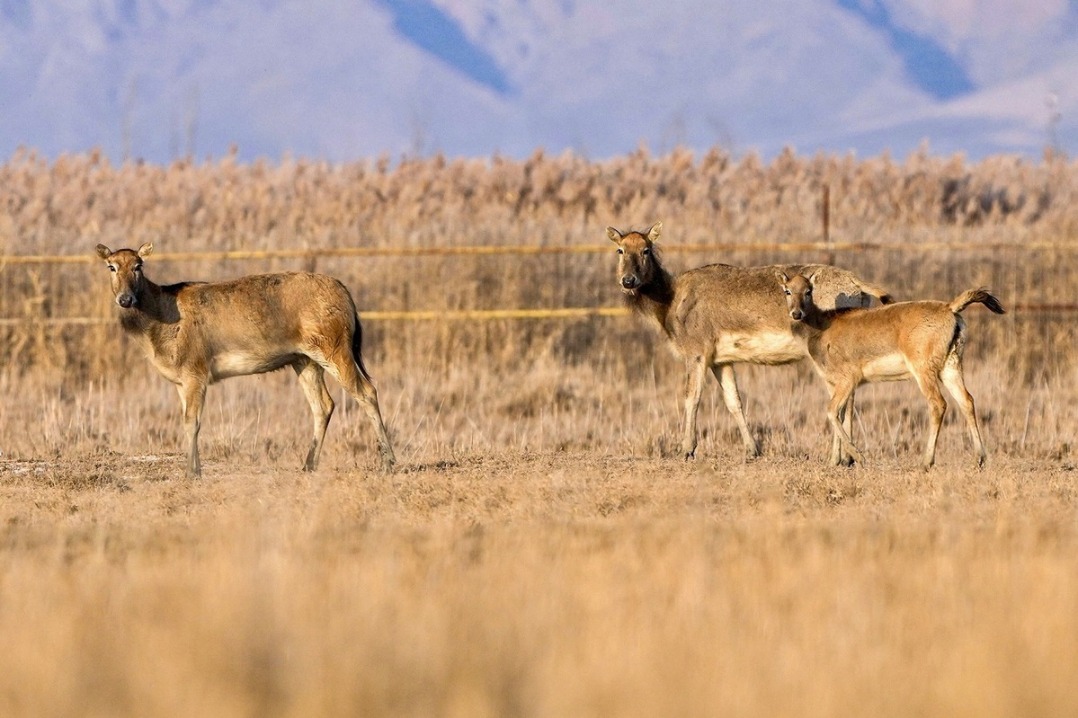Scientific cooperation key to addressing global challenges
Experts call for collaboration to bridge technology gaps, access to knowledge

Global experts highlighted the importance of scientific cooperation in addressing global challenges at a recent conference in Beijing, emphasizing that it is the path toward a more sustainable, equitable and knowledge-driven future.
"We live in an era marked by interdependence. The challenges we face — climate change, biodiversity loss, healthcare prices, energy transitions and the rapid rise of artificial intelligence — do not respect borders. They are global in nature, and they require global cooperation to be effectively addressed," said Helena Nader, president of the Brazilian Academy of Sciences.
"Science diplomacy, therefore, is not a luxury. It is a necessity. It is through dialogue, trust and shared scientific endeavor that we can build bridges between nations, foster mutual understanding and co-create solutions that leave no one behind from the perspective of the Global South," she said.
Nader added that cooperation must not only generate knowledge but also build capacity, strengthen institutions and empower young scientists everywhere to contribute to global progress.
The remarks were made at the opening ceremony of the 4th ANSO General Conference 2025. The Alliance of National and International Science Organizations for the Belt and Road Regions, or ANSO, is a nonprofit, nongovernmental international organization established in 2018 by the Chinese Academy of Sciences to bring global experts together for in-depth communication and collaboration.
Shahbaz Khan, director and representative to the UNESCO Regional Office for East Asia, echoed Nader's views, emphasizing that no single country can address these challenges alone.
"UNESCO sees science, technology and innovation as global public goods — building policies, strengthening capacities and forging partnerships," Khan said, adding that these are necessary for achieving the United Nations Sustainable Development Goals and fulfilling the promise of leaving no one behind.
"At the 2025 UNESCO Global Ministerial Dialogue on Science Diplomacy, ministers reaffirmed that science remains a bridge for dialogue and peace, even amid geopolitical tensions," he said.
He also stressed the importance of open science as a vital tool to improve the quality and accessibility of knowledge, bridge technology gaps and uphold the human right of access to science.
Nebojsa Lalic, secretary-general of the Serbian Academy of Sciences and Arts, said that Serbia has embraced open science principles as one of the achievements of civilization and progress in science.
Lalic said that open science should be integrated into academic settings and research practices and implemented globally. This would enhance access to data and research outputs, facilitate communication and provide a stronger foundation for collaborative projects.
However, Lalic also pointed out challenges regarding implementation, such as the lack of essential infrastructure, including equipment and ethical principles, and noted that communication with some countries is sometimes restricted.
Sukit Limpijumnong, president of ANSO and of Thailand's National Science and Technology Development Agency, said that the theme of the conference, "Science & Innovation for a Sustainable Future", speaks to the pressing reality that the Sustainable Development Goals call for accelerated progress.
"While global scientific collaboration is essential to this effort, occasional rifts have slowed our collective work. This is precisely why dialogue and partnership matter more than ever," Limpijumnong said.
"Together, we can deliver science-based solutions to pressing challenges, guide emerging technologies toward shared benefit and get the SDGs back on track — not only for this generation, but for future generations who count on us," he added.
He Hongping, vice-president of the Chinese Academy of Sciences, highlighted China's contributions to promoting the building of global scientific capacity.
"Our extensive research capabilities — including over 100 research institutes across China, a number of national key laboratories and dozens of world-class mega science facilities — have been instrumental in advancing ANSO's mission of enhancing scientific capacity in the developing world and promoting science-based sustainable development for humanity," He said.
"We look forward to further strengthening our partnerships and concrete collaborations with other members to achieve the objectives of ANSO in promoting global sustainability through scientific and technological innovation," He added.
limenghan@chinadaily.com.cn



































